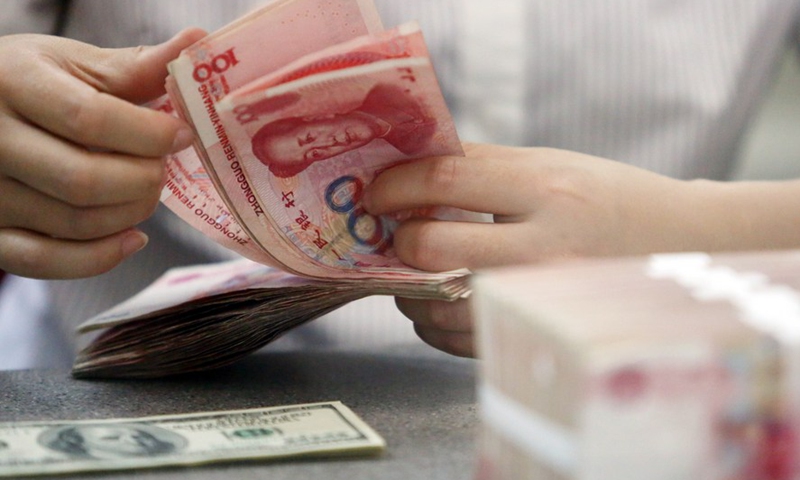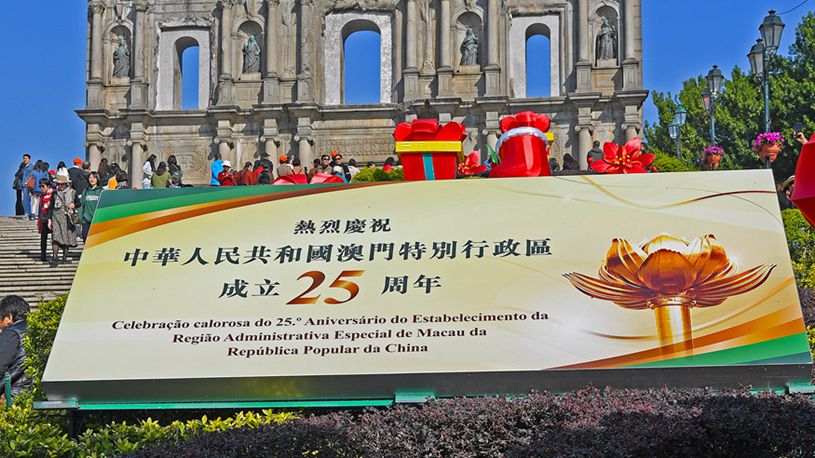RMB moves to take 4th spot as currency for global payments: SWIFT

File photo shows a worker counting Chinese currency Renminbi (RMB) at a bank in Linyi, east China's Shandong Province. (Xinhua/Zhang Chunlei)
The Chinese yuan moved one position up to the fourth most active currency for global payments by value in November, with a share of 3.89 percent, according to a report from the Society for Worldwide Interbank Financial (SWIFT).
Overall, yuan payments value increased by 22.12 percent compared to October, according to the report. SWIFT is a global provider of financial messaging services.
China's Hong Kong Special Administrative Region is the largest market for offshore yuan transactions, taking up 76.18 percent, followed by the UK at 6.16 percent and Singapore at 3.76 percent, the report said.
The data shows that the yuan is becoming increasingly popular as more countries are willing to use the Chinese currency in cross-border trade settlement, conduct cross-border investment and financing, and sign currency swap deals with China, Xi Junyang, a professor at the Shanghai University of Finance and Economics, told the Global Times on Thursday.
With solid efforts to promote yuan's internationalization in recent years, China has seen a strengthened role of the yuan across the board, from international payment and settlement, investment and financing, and reserves to pricing.
As of the end of August, the People's Bank of China (PBC), the country's central bank, signed bilateral currency swap agreements with 42 foreign central banks or monetary authorities. A total of 29 bilateral currency swap agreements are in force, with a total scale of about 4.1 trillion yuan ($561.72 billion), the Xinhua News Agency reported, citing a PBC report.
The PBC stressed at a meeting on Monday that the central bank will steadily boost financial reform and high-level opening-up next. It said efforts will be made to promote the internationalization of the yuan in a careful and robust manner, further enhance its functions as an international currency for cross-border payments, investment and financing, reserves, and other functions. Meanwhile, the central bank will strengthen the competitiveness of the yuan cross-border payment system.
The internationalization of the yuan is an important part of China's financial opening-up. Looking ahead, efforts are needed in several aspects to boost the yuan's internationalization, Xi said. He said the country should continue to expand opening-up, strengthen connect programs with other markets, and facilitate convenience in cross-border investment and fund-raising.
As an increasingly international currency, the yuan is able to maintain a stable exchange rate in the future thanks to multiple favorable factors, including the central government's supportive macroeconomic policies that have improved market expectations, sustained economic recovery, and foreign exchange market resilience.
Photos
Related Stories
Copyright © 2024 People's Daily Online. All Rights Reserved.









